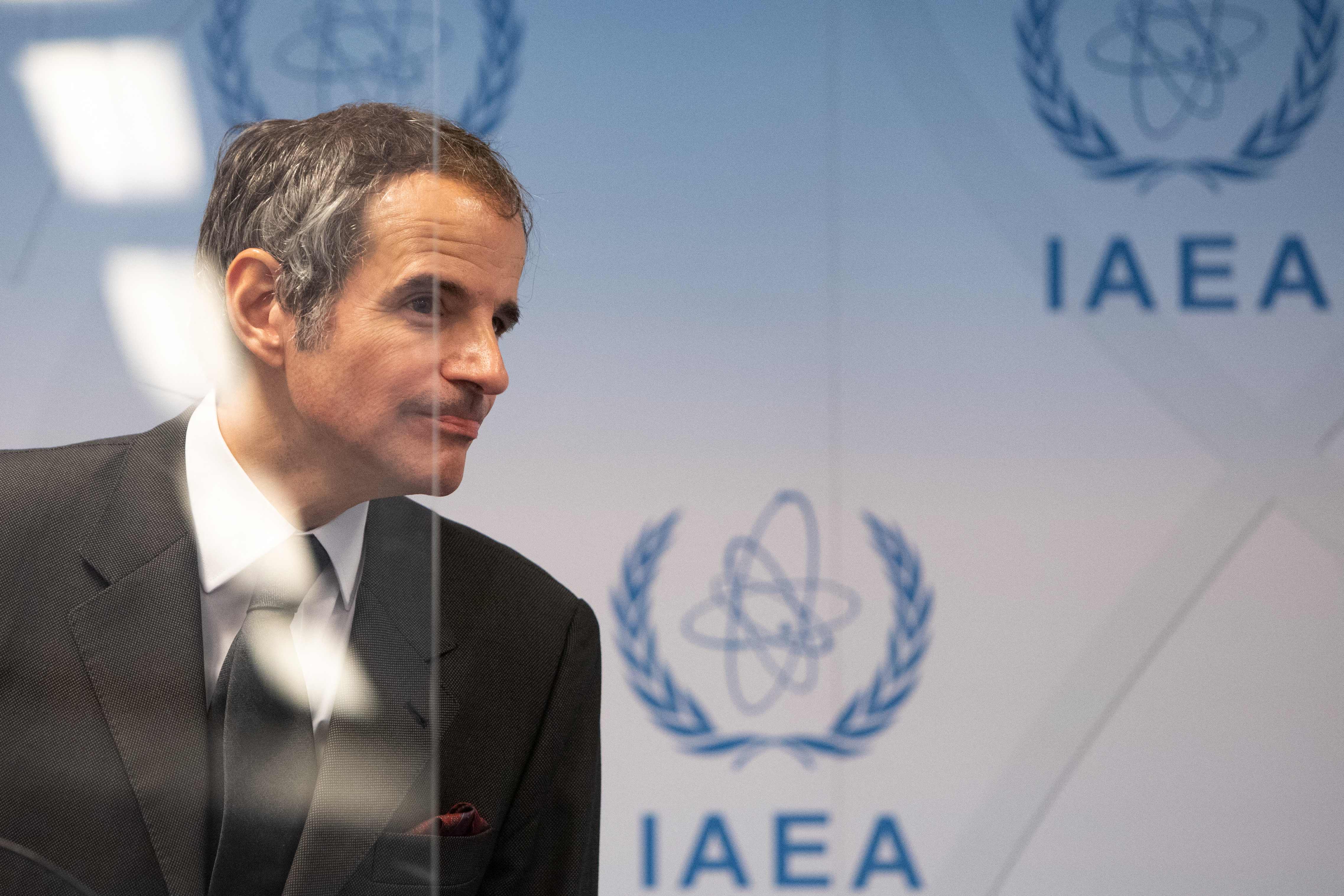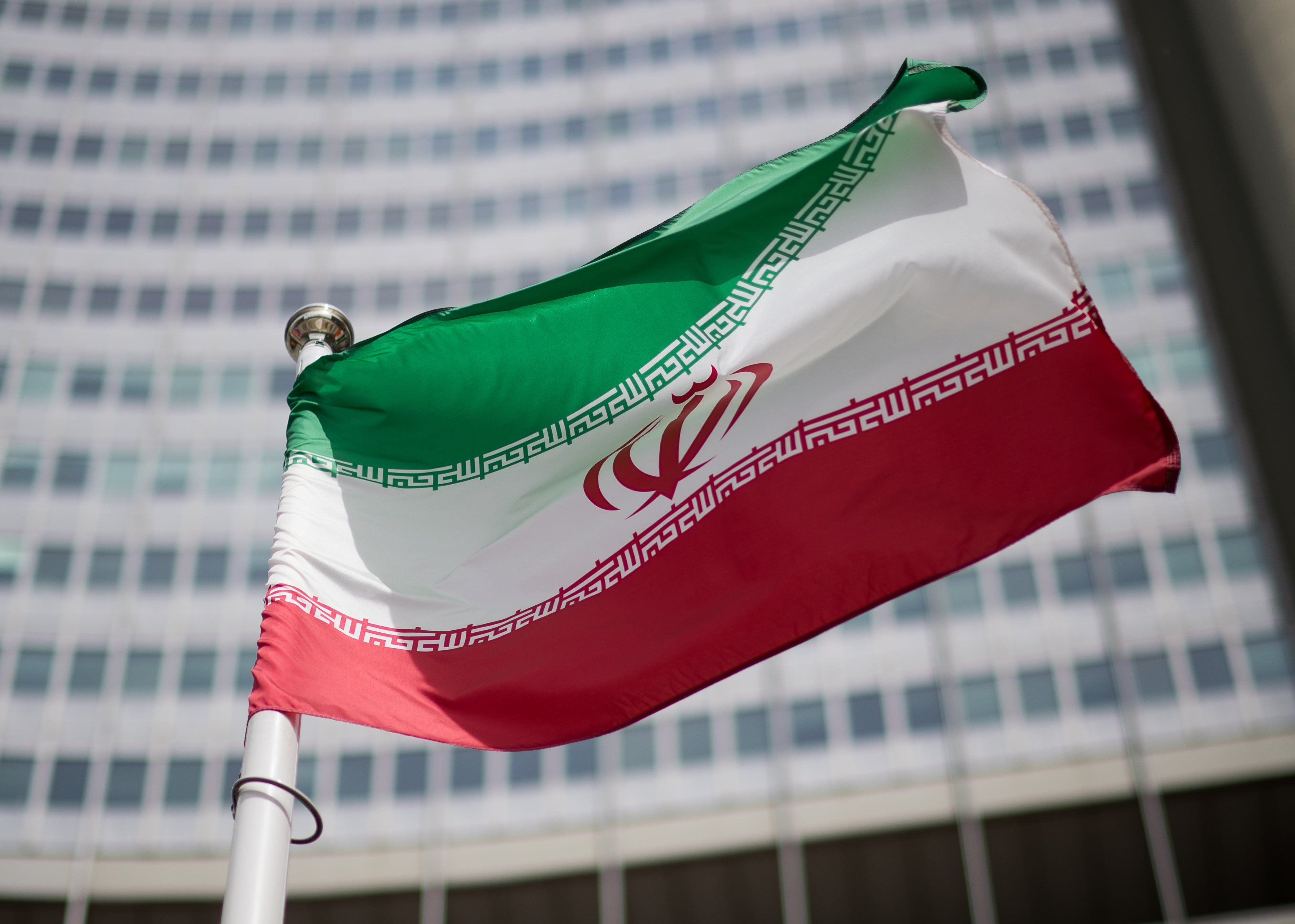Iran agrees to keep footage of nuclear sites, averting crisis
Tehran backs down from threat to destroy data as negotiators try to revive deal and lift sanctions

Your support helps us to tell the story
From reproductive rights to climate change to Big Tech, The Independent is on the ground when the story is developing. Whether it's investigating the financials of Elon Musk's pro-Trump PAC or producing our latest documentary, 'The A Word', which shines a light on the American women fighting for reproductive rights, we know how important it is to parse out the facts from the messaging.
At such a critical moment in US history, we need reporters on the ground. Your donation allows us to keep sending journalists to speak to both sides of the story.
The Independent is trusted by Americans across the entire political spectrum. And unlike many other quality news outlets, we choose not to lock Americans out of our reporting and analysis with paywalls. We believe quality journalism should be available to everyone, paid for by those who can afford it.
Your support makes all the difference.Iran has avoided a potential escalation in the dispute over its nuclear programme by agreeing to allow intrusive surveillance of sensitive facilities to continue amid high-stakes talks to reverse its atomic activities and remove harsh United States sanctions.
Tehran and the United Nations’ atomic technology watchdog agreed to allow cameras to monitor the country’s nuclear sites for another month, officials announced, after a weekend deadline demanded by Iran’s parliament expired.
Kazem Gharibabadi, Tehran’s envoy to the Vienna-based International Atomic Energy Agency announced via Twitter Iran’s decision on “the continuation of the data recording” for one more month.
Under a deal worked out in February, Iran was to allow cameras to continue to record images of activities inside sensitive installations. But the country’s leaders vowed to destroy the data for ever if there was no quick deal to return to the Joint Comprehensive Plan of Action (JCPOA), the nuclear deal forged six years ago but abandoned by Donald Trump’s US administration.
Weeks of intensive but indirect talks in Vienna between Iran and the US have yielded progress but no breakthrough, officials say, prompting an extension of the monitoring.
“It is completely clear that we have had significant progress, and we think the understanding is within reach,” Iranian foreign ministry spokesman Saeed Khatibzadeh said.
The deal extends the surveillance capability of the watchdog just beyond Iran’s presidential elections on 18 June. It grants Iranian, American and other negotiators in Vienna breathing space to hammer out a possible deal in the coming weeks.
It also adds pressure on negotiators as well as inspectors wanting to monitor Iran’s nuclear programme. Western diplomats and nonproliferation experts are alarmed by a lack of real-time visibility on Iran’s nuclear facilities while Tehran is already avowedly expanding its ability to enrich uranium and increasing its stockpiles well beyond limits imposed by the JCPOA.
“This is not ideal,” said IAEA director-general Rafael Mariano Grossi, in Vienna. “This is like an emergency device that we came up with in order for us to continue having these monitoring activities.”
Mr Trump’s withdrawal from the nuclear deal and imposition of sanctions at the behest of a narrow circle of Washington hawks prompted Iran to begin breaching limits imposed by the JCPOA on its nuclear programme.
The administration of US president Joe Biden wants to revive the deal and bring both countries back into compliance, but has voiced doubts about Iran’s intentions.
One particular dispute is over Iran’s continued operation of advanced centrifuges that refine uranium into fissile material. Iran wants to keep using advanced devices that replaced older models destroyed in a suspected Israel attack on its facility at Natanz last month. The US insists the JCPOA forbids their use.

“We know what sanctions would need to be lifted if they’re inconsistent with the nuclear agreement,” US Secretary of State Antony Blinken told ABC News on Sunday. “But as important and indeed more important, Iran knows what it needs to do to come back into compliance on the nuclear side. And what we haven’t yet seen is whether Iran is ready and willing to make a decision to do what it has to do.”
Iran insists that since the US first breached the deal, the onus was on Washington to remove sanctions. “We recommend the negotiating countries to seize the extra opportunity provided by Iran in good faith for the complete lifting of sanctions in a practical and verifiable manner,” Mr Gharibabadi wrote on Twitter.
The interim deal suggests that Iran is eager to return to the deal and is not seeking to provoke a crisis over its nuclear programme. Russia’s ambassador to the IAEA, Mikhail Ulyanov, tweeted that the agreement would “help maintain business-like atmosphere at the Vienna talks on JCPOA and facilitate a successful outcome of the diplomatic efforts to restore the nuclear deal”.
Join our commenting forum
Join thought-provoking conversations, follow other Independent readers and see their replies
Comments